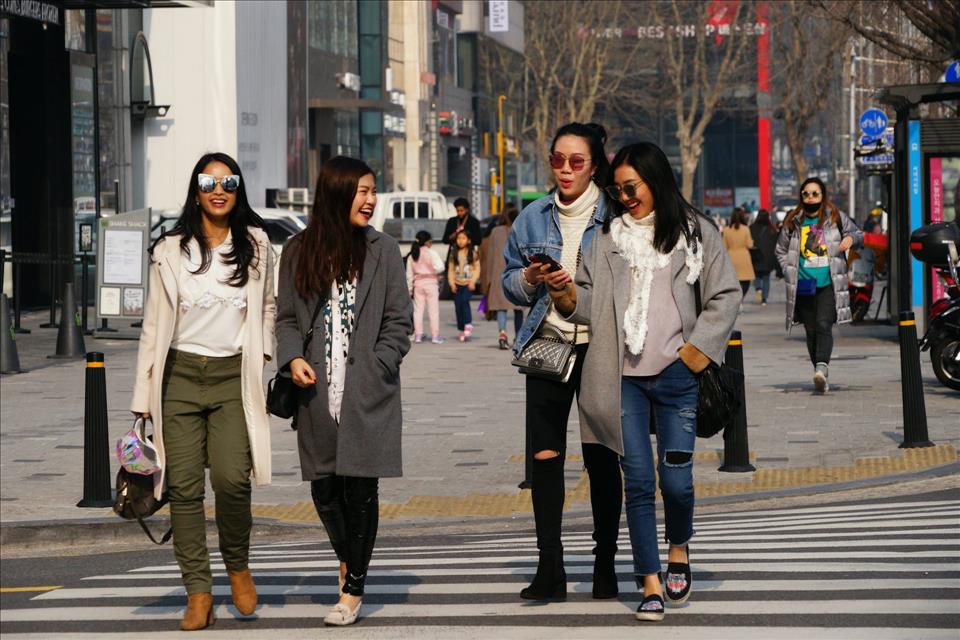Concerns Rise Over Women’s Rights Following Trump’s Election
The recent return of Donald Trump to the political forefront has reignited concerns regarding the future of women’s rights in the United States. Trump’s history of misogyny, coupled with his proud involvement in the Supreme Court shift that led to the overturning of the constitutional right to abortion in 2022, has understandably provoked strong reactions.
Actions Taken by American Women
In the wake of the November elections, many American women began encouraging one another to take proactive steps for safety and independence. This included deleting dating apps, enrolling in self-defense courses, and considering birth control options. Additionally, attention was drawn to the 4B movement, a radical feminist initiative originating from South Korea, where some women are opting out of marriage, motherhood, and romantic relationships with men.
The Rise of the 4B Movement
Emerging as a reaction to deep-seated misogyny in South Korean society, the 4B movement gained traction on social media following the US elections. Its name is derived from its core tenets: bihon (no marriage), bichulsan (no childbirth), biyeonae (no dating), and bisex (no sex). While feminist activism has existed in South Korea for years, it has only recently surged in popularity, especially following prominent events highlighting violence against women.
Triggering Events in South Korea
In 2016, the tragic murder of a woman by a stranger in a public restroom in Seoul ignited nationwide mourning and backlash against misogyny. This incident was pivotal in galvanizing feminist activism. The #MeToo movement subsequently gained momentum in South Korea, following allegations against notable figures such as filmmaker Kim Ki-duk and actor Cho Jae-hyeon. Both denied wrongdoing, but the allegations underscored a broader societal issue surrounding gender violence.
Political Accountability
Charges of sexual misconduct infiltrated South Korea’s political landscape, resulting in resignations and convictions. Governor Ahn Hee-jung resigned in 2018 amid rape accusations from his secretary and received a prison sentence. In a separate incident, former Seoul Mayor Park Won-soon died by apparent suicide following a sexual harassment claim, leading to public outcry over governmental support for him.
Widespread Sexual Violence Issues
The problem of sexual violence is pervasive in South Korea, with many women experiencing non-consensual filming in public spaces. A report revealed a staggering fivefold increase in illicit filming incidents from 2011 to 2017, with much of the footage circulating on adult websites. The toll on victims has led many to suffer mental health issues, such as depression and suicidal thoughts, contributing to the emergence of the 4B movement.
From Hopelessness to Empowerment
The 4B movement surfaced during a critical time when South Korea grappled with gender violence and inequality. As a researcher focusing on online activism, I observe a generation of South Koreans in their 20s and 30s who are disillusioned not only with dating and family life but also with career opportunities and societal prospects.
The Economic Fallout
This hopelessness stems largely from the 1997 Asian financial crisis, which led to labor market reforms that resulted in insecure employment for many citizens. As economic stability dwindled, a significant number of young people chose to abandon traditional goals such as marriage and home ownership.
Gender Conflict and Political Manipulation
The online discourse surrounding gender issues has fueled conflicts, with some young men perceiving themselves as victims of the successes of feminist movements. This sentiment has been exploited by politicians, such as Yoon Suk Yeol, who leveraged misogyny for electoral success, promising to dismantle the Ministry of Gender Equality and Family during his campaign.
A Broader Reflection of Global Inequalities
While certain aspects of this resignation are particular to South Korea, they mirror trends in various advanced industrialized nations grappling with growing socioeconomic disparities. The societal divide is deepening, highlighting a conflict exacerbated by economic inequality in an increasingly polarized world.


